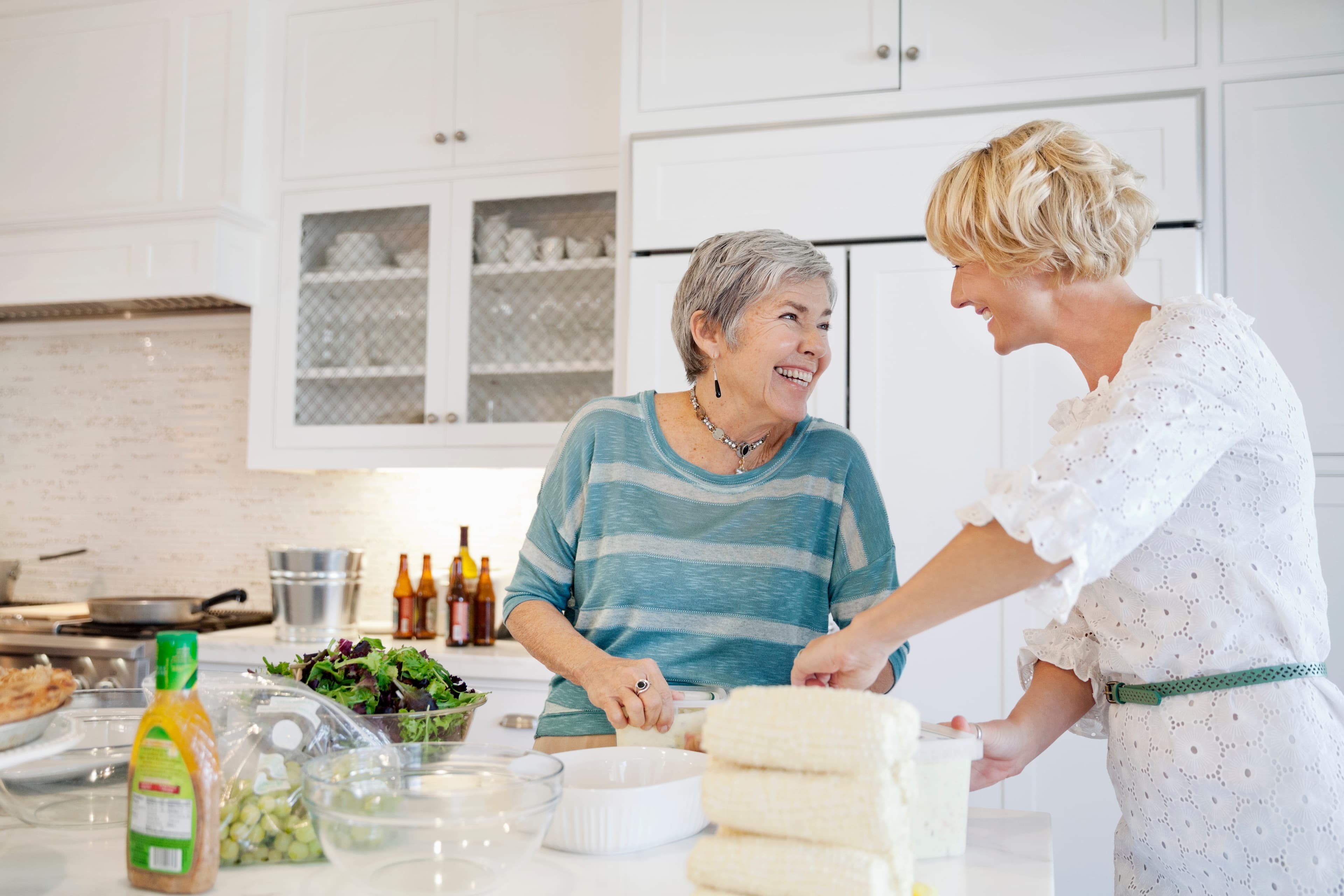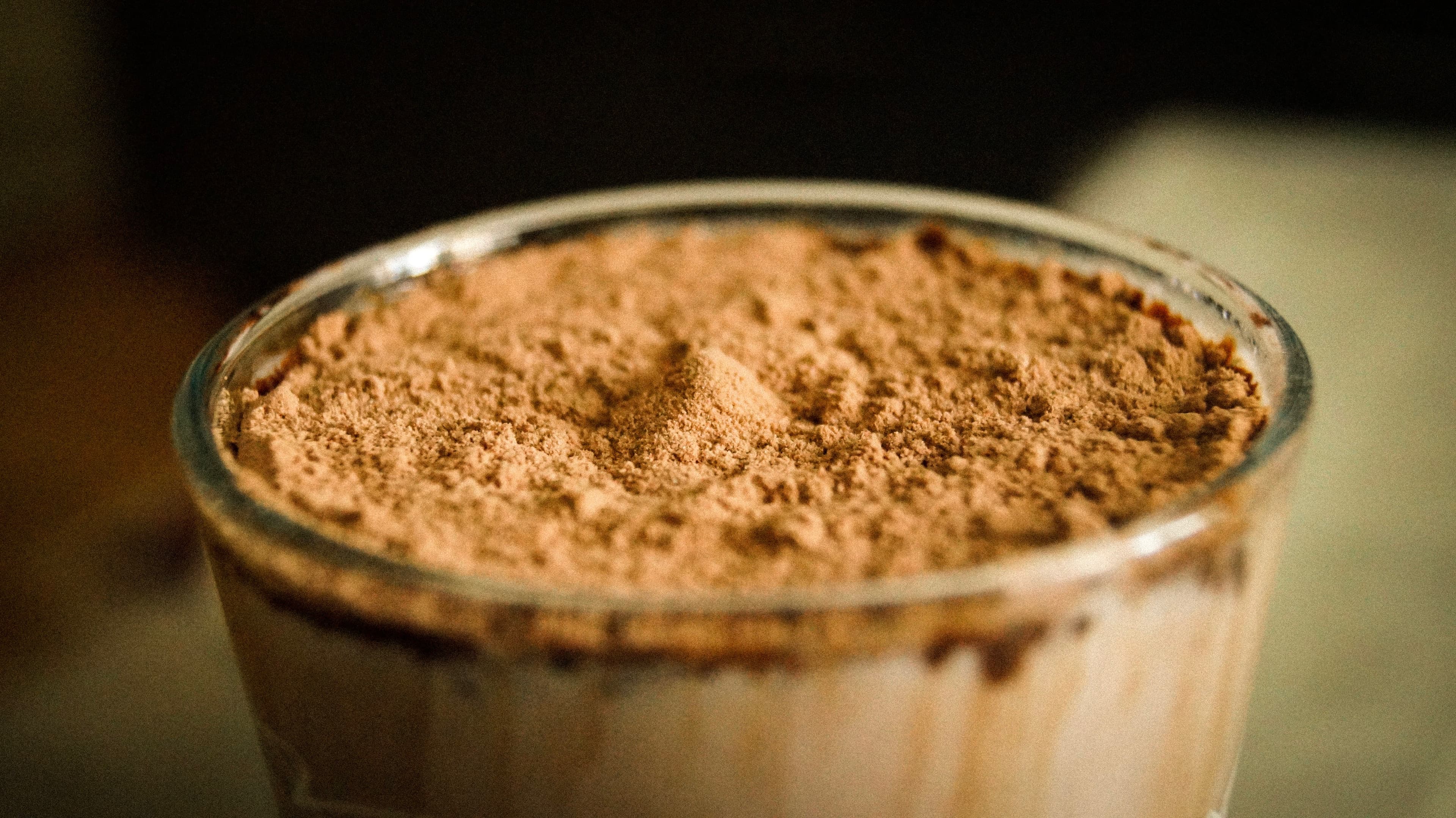Family caregiving presents various challenges, but one of the most perplexing is getting a loved one to eat. Many older adults, in particular, lose their appetite due to underlying medical or psychological conditions.
We’ve provided tips for picky eaters before, but in this article, we hone in on the importance of solid food. While protein shakes, like Boost, can supplement snacks and meals, they aren’t a substitute for balanced nutrition.
Encouraging a loved one to eat more solids isn’t always easy, but there are several strategies you can use. To learn more, we reached out to Mary-Ellen Sabat, RD, a registered dietitian, and Daniel Morris, the founder of My Caring Plan, a website dedicated to helping family caregivers. Below, we highlight their tips and suggestions for helping a loved one to eat solids.
Why is a Loss of Appetite So Common in Older Adults?
Decreased appetite is a common concern for many caregivers, but it doesn’t mean you’re doing a bad job. In fact, appetite changes are quite common, affecting 11-15% of seniors. Sabat says this happens for different reasons, including:
Medical conditions, like chronic illnesses
Metabolic changes that reduce calorie requirements
Digestive problems, like nausea, bloating, and diarrhea
Depression and isolation
Difficulty swallowing (dysphagia)
Oral health problems, like missing teeth, cavities, or poorly fitting dentures
How to Help a Loved One Eat Solids - A Step-By-Step Guide
Step 1: Visit the Doctor and Dentist
If you notice that your loved one isn’t as interested in eating as they used to be, the first step is making an appointment with their doctor and dentist.
Loss of appetite and/or refusal to eat solids are complex conditions that occur for different reasons. A qualified healthcare provider can complete an exam, order specialized testing, and treat any underlying health problems contributing to the issue.
For example, someone with dementia who wears dentures might have difficulty communicating problems like a poor fit or irritated gums. As a result, getting your loved one to eat again might be as easy as having their dentures realigned.
Step 2: Create a Pleasant Eating Environment
Many older adults with mobility issues spend most of their time in bed or in a wheelchair. Being confined to a specific area of the home might be necessary, but it doesn’t always help increase appetites. Luckily, you can make snacks and mealtimes more appealing by creating a comfortable environment.
Sometimes, it’s the little things that matter most. Try serving meals on colorful or patterned plates. Provide clean silverware and napkins. Turn the lights up or down for a sense of ambiance. Likewise, limit distractions. Feel free to turn on the TV or radio, but keep the volume low so your loved one can focus on the food instead of the entertainment.
Above all, serve your loved one with a smile. The more relaxed and positive you are, the more likely your loved one is to enjoy mealtime.
Step 3: Offer Healthy, Nutrient-Rich Foods
When caring for someone with a poor appetite, it’s important to focus on food quality rather than the amount of food.
“Concentrate on foods that will pack the biggest nutritional punch. Foods that are high in protein, as well as healthy fats, make the biggest impact nutritionally,” explains Dan Gallagher, RD, a registered dietitian at Aegle Nutrition. “Even if you keep the portion sizes small, nutrient-rich foods can help boost your loved one’s energy levels and give them the vitamins and minerals they need to feel their best.”
Morris agrees, adding that many family caregivers benefit from offering their loved ones small, nutritious snacks throughout the day. “This method ensures your loved one receives sufficient nutrition without feeling overwhelmed.”
Step 4: Include Your Loved One in Meal Prep and Decision-Making
Your loved one might have health problems that limit their mobility or energy levels, but that doesn’t mean they’re helpless. Considering that 93% of seniors say they regularly experience some form of ageism, it’s important to push back against it.
If your loved one doesn’t eat as much as they used to or they have a lack of appetite, don’t assume they aren’t interested. Instead, encourage them to get involved in meal planning and preparation.
“This participation provides a sense of accomplishment and stimulates interest in the food being prepared, which can help boost their low appetite,” Sabat says. Morris concurs, adding that encouragement and patience are equally important. “Gently encourage your loved one to get involved, but don’t force them. Respecting their choices and autonomy helps create a positive atmosphere when it’s time to eat.”
Step 5: Establish a Meal Schedule
Keeping to a meal schedule can be challenging, but it’s very important if your loved one has lost interest in solid foods. Eating at specific times of the day ensures your loved one gets the nutrient intake that they need. It also supports their metabolism and blood sugar. Routine meals help keep blood sugar stable and reduce symptoms, like lightheadedness, that might cause your loved one to avoid eating.
Everyone has different needs, but most dietitians recommend:
Eating breakfast between 7 a.m. - 9 a.m.
Eating lunch between 11 a.m. - 1 p.m.
Eating dinner between 4 p.m. and 6 p.m.
These times will vary, depending on your loved one’s appetite, general health, and medications.
Step 6: Don’t Be Afraid to Ask for Help
Caring for a loved one who has difficulty with solids can be quite challenging. It can be heartbreaking to see someone you love not eating well and not feeling healthy.
“If difficulties persist, consider consulting with a registered dietitian or another healthcare provider,” Sabat says. “They can provide tailored guidance and address specific dietary concerns for both older adults and babies. Solid food intake is crucial for nutrition and development. For older adults, maintaining a balanced diet is essential for overall wellness, preventing malnutrition, and preserving independence. Ensuring proper nutrition at all life stages is vital for a healthy and fulfilling life.”
How to Help a Loved One Eat Solids - Commonly Asked Questions
1) Why do so many older adults lose interest in solid foods?
Many adults, especially those 75 and older, experience physiological changes. “These changes include a decreased sense of taste and smell, which naturally lessens the interest in food,” explains Morris. “Furthermore, dental issues and changes in digestion can be contributing factors.”
2) Can mobility issues affect someone’s appetite?
Yes. Limited mobility can make it difficult to use utensils like forks and knives. It can also take some of the joy out of eating, especially if your loved one has to stay in bed due to an underlying medical condition.
To address these issues head-on, Morris recommends providing your loved one with adaptive utensils. “These can make eating less stressful for those with mobility issues and make mealtimes more dignified.”
Shop all adaptive utensils on Carewell
3) Is there any way to supplement meals and snacks if my loved one refuses to eat solid foods?
One of the best ways to support a loved one who can’t or won’t eat solid foods is with nutritional shakes, like Boost.
“If your loved one shows a decreased interest in regular meals, nutritious shakes such as Boost can be beneficial,” Morris says. “While the urgency of maintaining a balanced diet cannot be stressed enough, there are instances when incorporating nutrition drinks serves as a logical approach.”
At Carewell, we carry several brands of nutritional shakes, including:
Shop Boost on Carewell
Shop Reason Health on Carewell
Shop Ensure on Carewell
Struggling to Help a Loved One Eat Solids? We’re Standing By!
We regularly hear from family caregivers with questions about feeding and nutrition. If you’re unsure what to stock your pantry with or need advice on choosing the right nutritional shake for your loved one’s needs, contact our friendly Care Specialists at any time.
Call (800) 696-CARE or send an email to support@carewell.com. We’re available and committed to making your life easier.




